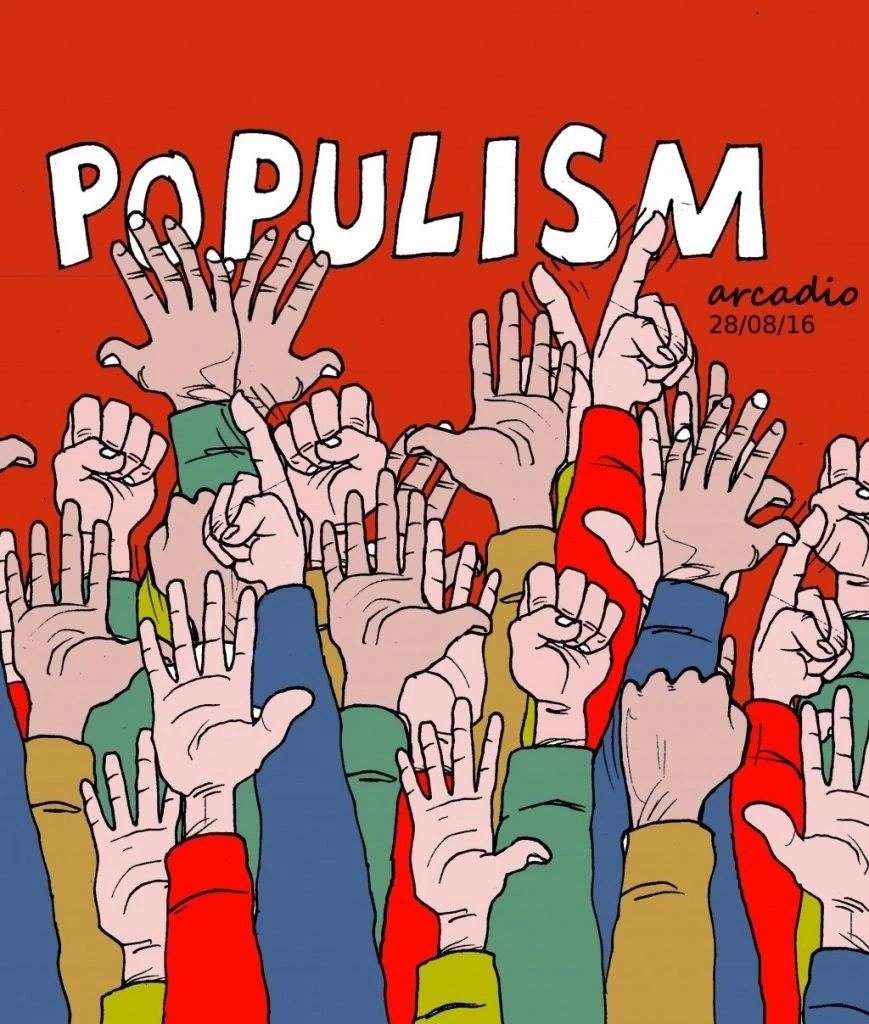Populism: A Symptom of Capitalism’s Contradictions

Populism is a political phenomenon that has been on the rise in recent years, both in the United States and around the world. Populist movements often appeal to the common people against the elite, and they often scapegoat minority groups for the problems facing society.
The rise of populism can be seen as a symptom of the growing contradictions of capitalism. As capitalism has developed, it has led to increasing inequality and exploitation of the working class. This has created a sense of alienation and resentment among many people, which has made them susceptible to populist appeals.

The Causes of the Rise of Populism
There are a number of factors that have contributed to the rise of populism in recent years. These include:
The Great Recession
The Great Recession of 2008 was a major blow to the working class in many countries. It led to job losses, wage cuts, and home foreclosures. This economic hardship created a sense of anger and resentment among many people, which made them more likely to support populist movements.
Globalization
Globalization has also contributed to the rise of populism. As businesses have moved their operations to countries with lower wages, it has led to job losses in developed countries. This has also led to a sense of anxiety and insecurity among many people, who fear that their jobs and way of life are under threat.
Immigration
Immigration has also been a source of tension in many countries. Populist movements often scapegoat immigrants for the problems facing society, such as unemployment and crime. This has led to a rise in anti-immigrant sentiment and policies.
The Decline of Social Democracy
In the past, social democratic parties played a role in mediating the conflict between capital and labor. However, in recent years, these parties have become increasingly tied to the interests of big business. This has led to a decline in their support among the working class, which has made them more vulnerable to populist appeals.
The Rise of the Right-Wing Media
The rise of the right-wing media has also contributed to the rise of populism. These outlets often spread fear and misinformation about immigrants, minorities, and other groups that are seen as a threat to the status quo. This has helped to create a climate in which populist movements can thrive.
The Future of Populism
It is difficult to say what the future holds for populism. However, it is clear that it is a significant political force that will not be going away anytime soon. The challenge for progressives is to find a way to address the underlying causes of populism, such as inequality and exploitation, in order to build a more just and equitable society.

Conclusion
The rise of populism is a complex phenomenon with a variety of causes. From a Marxist perspective, it can be seen as a symptom of the growing contradictions of capitalism. However, it is important to remember that populism is not a monolithic phenomenon. There are different types of populism, with different goals and objectives. It is important to be critical of populist movements and to understand their underlying motivations.

- Art
- Causes
- Best Offers
- Crafts
- Dance
- Drinks
- Film
- Fitness
- Food
- Παιχνίδια
- Festival
- Gardening
- Health
- Κεντρική Σελίδα
- Literature
- Music
- Networking
- άλλο
- Party
- Religion
- Shopping
- Sports
- Theater
- Wellness



